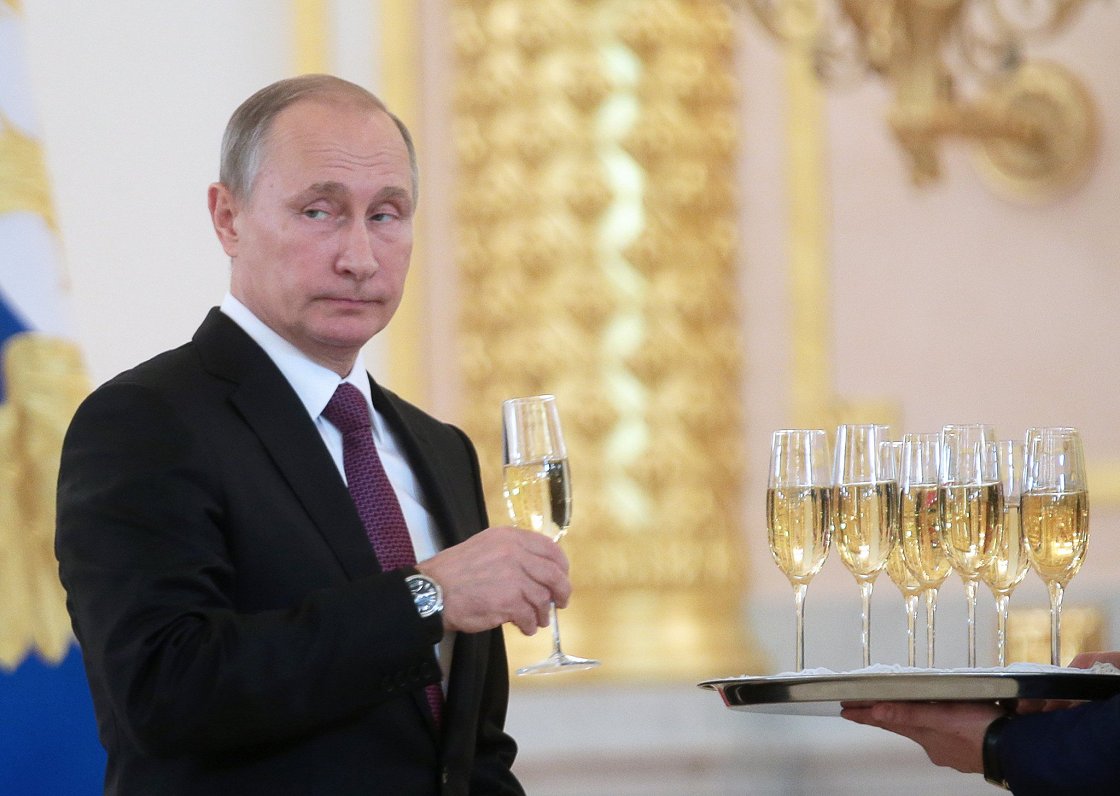In France, there has been a great deal of confusion over the law passed in Russia, which stipulates that only locally produced drinks may be called champagne on the Russian market, but all other such drinks must be called “sparkling wine”. French winemakers believe that Russian-made products are a cheap imitation of champagne, which is not worthy of the name.
France has been trying for years to make champagne the only drink produced in France in the province of Champagne, but everyone else should be called “sparkling wine”. A similar principle applies to cognac, which in France is considered to be a drink produced only in the department of Charente, near the town of Cognac, while producers of other similar drinks have to make use of the term ‘brandy’.
Russian champagne and French sparkling wine
But now Russia has passed a law that turns this principle upside down: in Russia, only locally produced drinks will be called champagne, while the drink imported from France will have to be called “sparkling wine”.
French producers will be allowed to use the name ‘Champagne’ on the main label, but on the back of the second, smaller label bottle, they will have to indicate in Cyrillic that it is ‘sparkling wine’.
The French company Moët Hennessy, part of the luxury goods group LVMH, initially admitted that it would have to suspend the export of champagne to Russia. Moët Hennessy represents brands such as Moët & Chandon, Veuve Cliquot and Dom Perignon.
However, Moët Hennessy later announced that it would soon resume exporting champagne to Russia; the company has agreed to write “sparkling wine” on the back label. Representatives of the company explain that the company has always tried to comply with local law.
Humiliating concessions
In France, many were puzzled by such humiliating concessions. Some expressed the view that it was in the business interest, because French champagne is a favorite drink of the rich in Russia. However, statistics show that Russia’s share of the French champagne market is relatively small.
The total volume of French champagne exports is estimated at more than 230 million bottles a year or 2.5 billion euros, the largest markets are the United States and the United Kingdom.
Russia imports about 50 million liters of sparkling wine a year, 13% of which is French champagne, but Moët Hennessy’s share is only around 2%. According to experts, this is about tens of millions of euros. As the magazine suggests List of Forbes billionaires, “LVMH” owner Bernard Arno is the second richest person in the world, his and his family’s wealth is estimated at 188 billion dollars.
A bourgeois drink for the proletariat
A relatively small proportion of the Russian population drinks French champagne, as most use the much cheaper “Sovetskoye champagne” and similar beverages. During the Soviet era, the communist regime developed the production of sparkling wines so that the proletariat could afford to enjoy a “bourgeois drink.”
In 1952, the production of champagne was also started in Riga, and the company “Latvijas balzams” has managed to maintain the brand “Rīgas šampanietis”, although in other European Union countries producers have been forced to refrain from using the word “champagne”.
The lawyers managed to convince the responsible authorities that in Latvia the word “champagne” has become a generic name for any sparkling wine, therefore it is not only related to the real champagne produced in the Champagne region.
Other countries have not fared as well as Armenia has has agreed to abandon the use of the term “Armenian cognac” in due course; The drink produced in Yerevan will probably have to be renamed “Armenian brandy”.
Putin’s private interests
The French press says that Russian President Vladimir Putin has taken care to pass a law to encourage the production of sparkling wine in Crimea, which is currently under Russian control.
The imprisoned Russian opposition leader Alexei Navalny has revealed in his inquiries that Putin and his associates also have a private interest in the wine business, in which significant investments have been made.
How to Le Parisien Jean de Glinasti, the former French ambassador to Moscow, has no particular cause for concern that the Russian people will now turn away from French champagne.
“All Russians know that real champagne is made in France. But most drink “Sovetskoye champagne”, a Soviet champagne that the French would hardly consider a good thing. “
–
Highlight text and press Ctrl+Enterto send the text to be edited!
Highlight text and press Report a bug buttons to send the text to be edited!
–
–

:strip_icc():format(jpeg)/kly-media-production/medias/3223193/original/030331200_1598787201-pexels-johannes-plenio-1126384.jpg)
